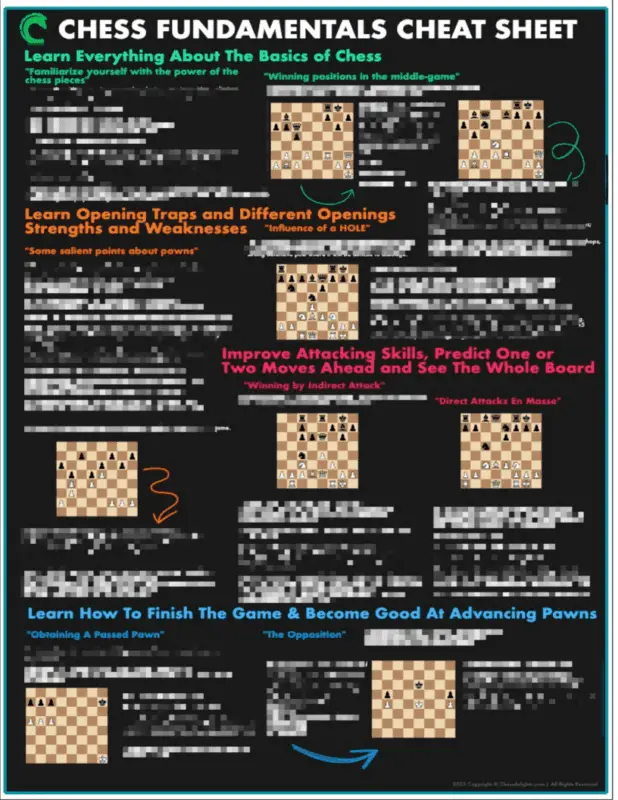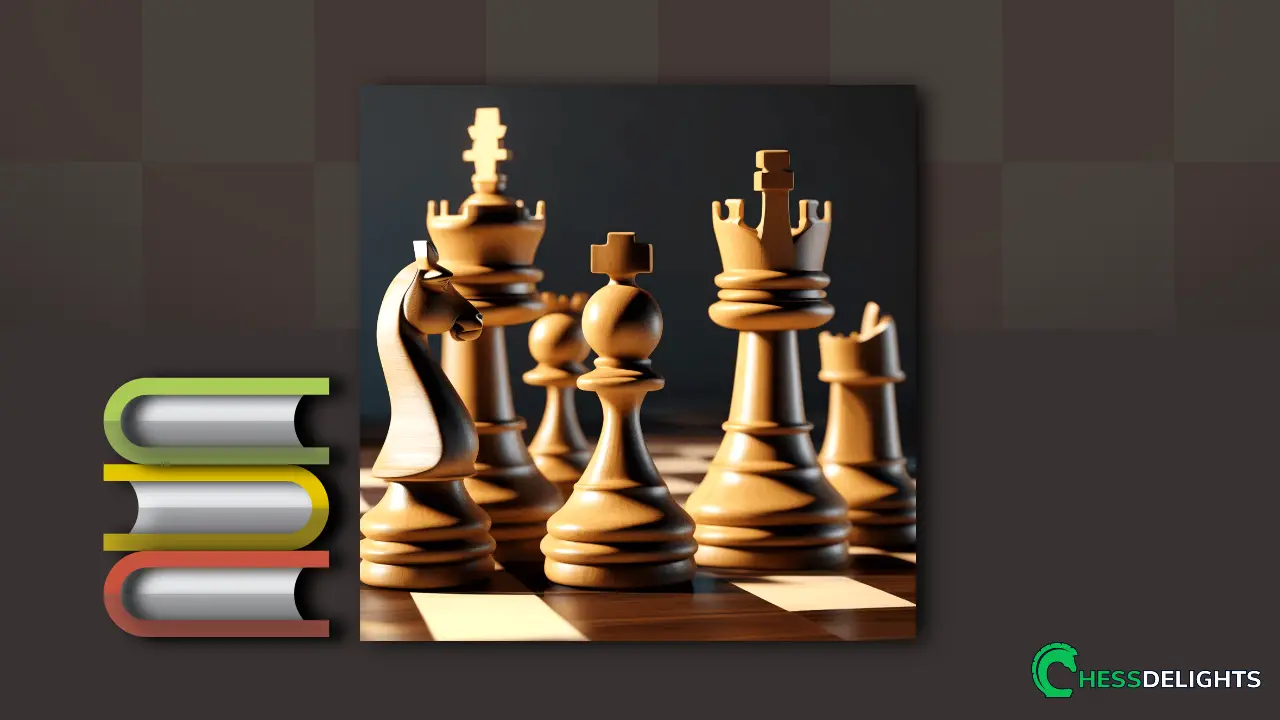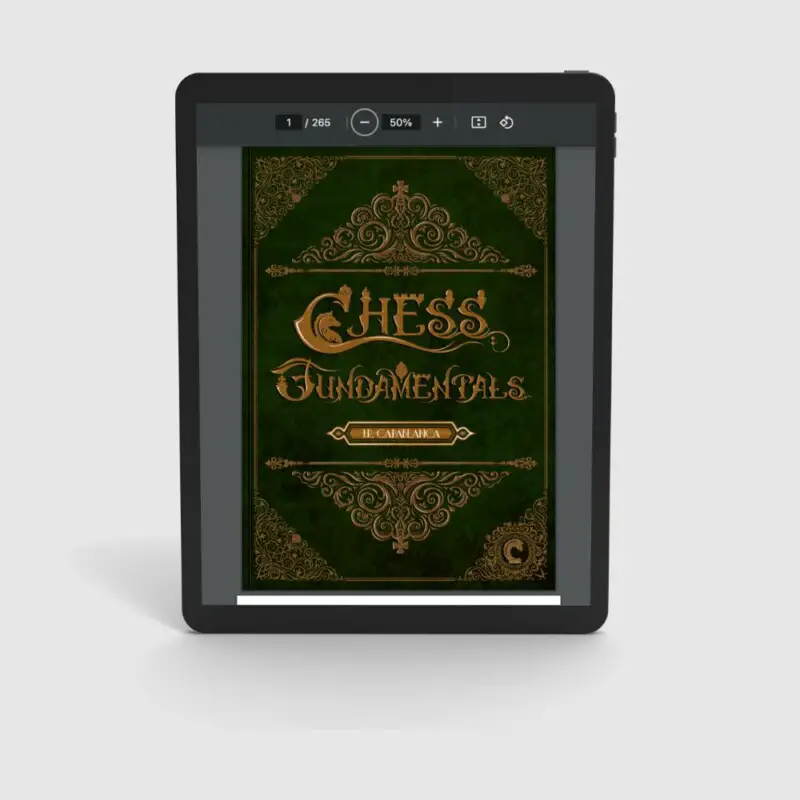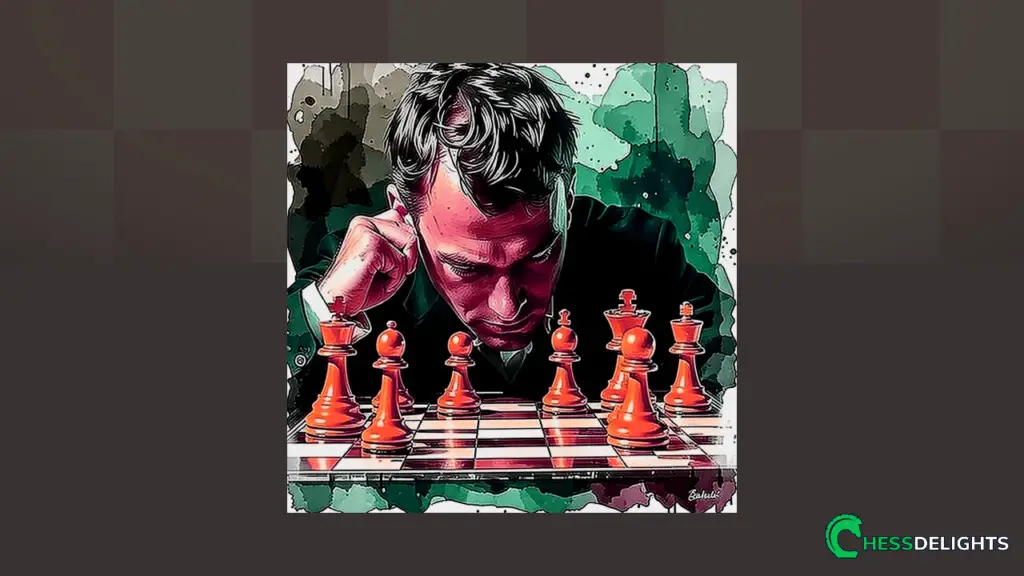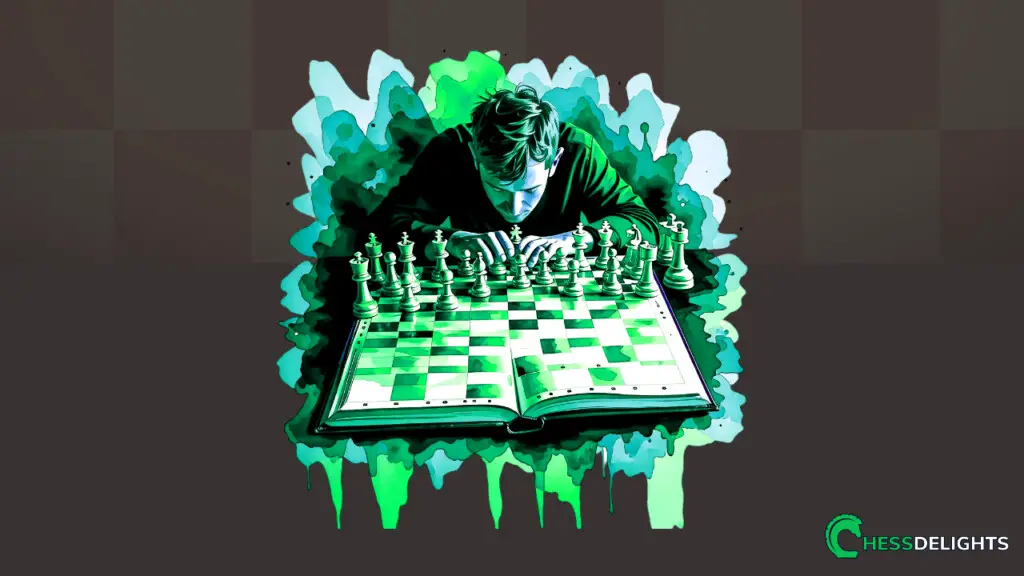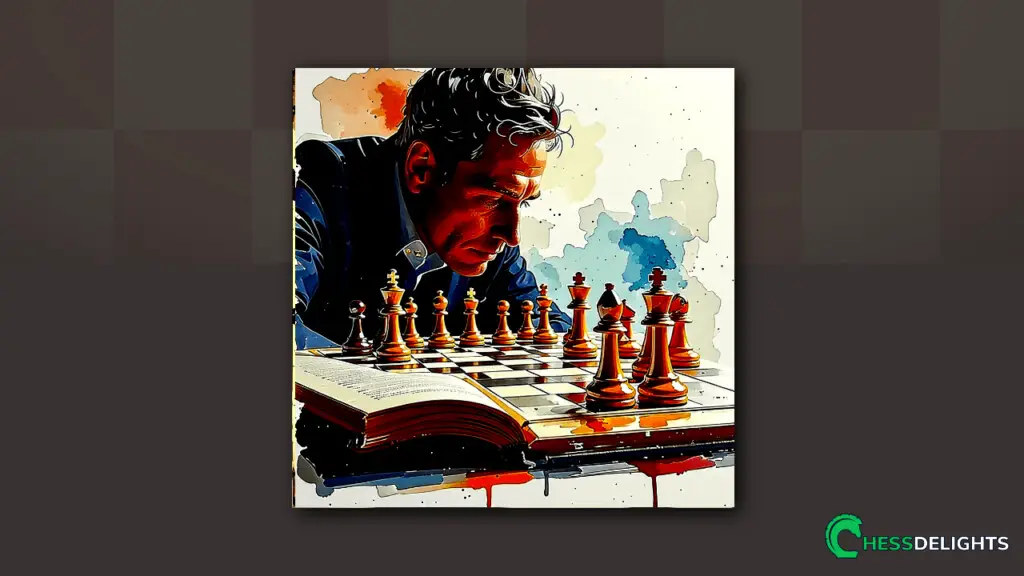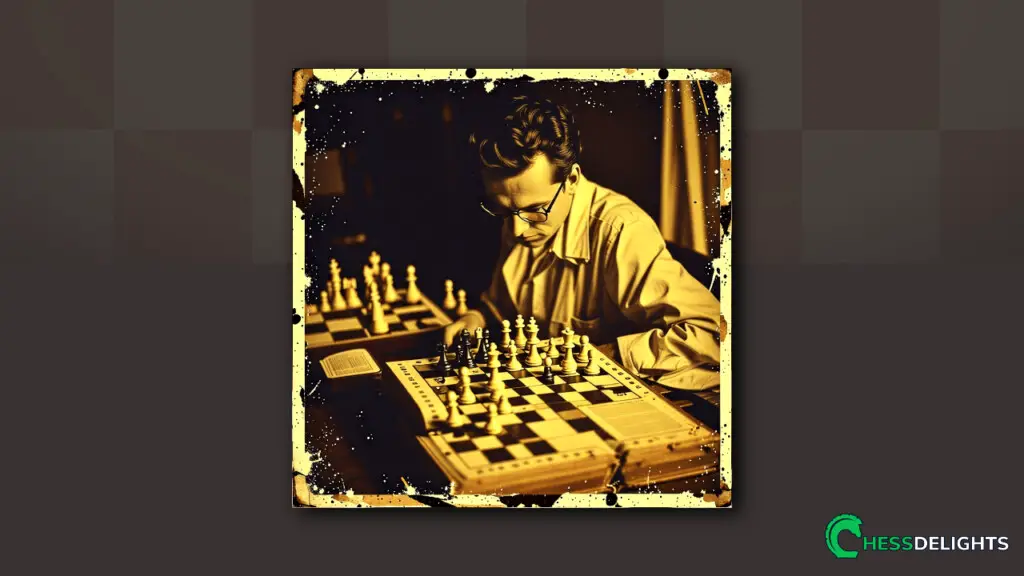If you have a lot of chess books all around your house and are unsure how to begin reading them or in what order, this guide will assist you in finding the ideal way to read chess books.
Chess has been a popular game for centuries, and many books have been written to help players improve their skills.
Whether you're a novice or an experienced player, knowing which books to read and in what order can significantly enhance your understanding of the game.
This post will guide you through the best chess books to read in order and how to maximize their value.
Table of Contents
Step 1. Begin with the Basics
The first step in reading chess books in order should involve understanding the fundamental concepts of the game.
Books such as “The Game of Chess” by Tarrasch and “Back to Basics: Tactics” by Dan Heisman provide a solid foundation for beginners.
These books cover the rules of the game, basic strategies, and common chess tactics.
Recommended : If you want to know where to start your chess journey, go to this page.
Starting with the Fundamentals
Why start with the fundamentals?
As a chess player and a chess enthusiast, I remember the early days of my journey into the world of chess.
It was an exciting yet overwhelming experience, filled with a plethora of strategies, tactics, and concepts to grasp.
The first step I took, which I highly recommend to any budding player, involved delving deep into the fundamental concepts of the game.
I personally found immense value in reading books such as “The Game of Chess” by Tarrasch and “Back to Basics: Tactics” by Dan Heisman.
Understanding the Rules
Find a book that helps you understand every rules of the game.
These books I mentioned above were instrumental in providing a solid foundation for my chess career.
They meticulously covered the rules of the game, from the straightforward pawn movement to the more intricate rules such as en passant and castling.
Grasping these rules was my first step towards understanding this profound game.
Recommended reading: If you're looking for the best book that teaches the principles of chess written by a former World Chess Champion – check this article.
Building Basic Strategies
As I progressed in my journey, I realized that knowing the rules is just the tip of the iceberg.
To win, I needed to formulate strategies.
The mentioned books guided me on how to plan my moves ahead, control the center of the board, and protect my king – basic yet powerful strategies that significantly elevated my game.
Mastering Chess Tactics
One of the game-changing skills I acquired from these books was understanding and utilizing common chess tactics like forks, pins, and skewers.
These tactics soon became my secret weapon, often helping me turn the tides in my favor even in the most dire of situations.
The journey to becoming a chess player begins with understanding the basics.
There’s an immense value these books bring in setting a strong foundation in your chess journey.
Step 2. Immerse Yourself in the Game
Once you have mastered the basics, it's time to immerse yourself in the game.
Drawing from my own journey and experiences, I can assure you that diving deeper into the game brought an unexpected richness and depth to my understanding, transforming chess from a pastime into a passion.
I found my guiding lights in books like “Three Hundred Chess Games” by Tarrasch and “The Amateur's Mind” by Jeremy Silman.
These aren't just ordinary books; they're like grandmasters whispering wisdom and strategies from their rich experiences.
I'm a really hardcore researcher who loves learning about chess, and I can vouch for the depth these books offer.
They provide a profound insight into the complex world of chess games and strategies, helping you understand the game from an insider's perspective and develop your own battle plans.
Their pages filled with strategic gems and tactical nuances helped me evolve as a chess player and I am confident they will do the same for you.
Recommended reading: If you want to learn if chess books are worth the money and if it can really help you with your game, check out this article.
Step 3. Building Your Chess Repertoire
Over the years, I have studied numerous chess books (offline and online) and applied their teachings to my gameplay.
Notably, “How to Build Your Chess Repertoire” by Steve Giddins was a game-changer.
This book pushed me to think differently about strategy, inspiring me to expand my repertoire and prepare for a variety of game scenarios.
I've learned that building your chess repertoire is not just about learning moves, but also about understanding the intricacies of the game.
It's about training yourself to think ahead, anticipate your opponent's moves, and prepare for all possible outcomes.
Step 4. Mastering the Middlegame and Endgame
In my own experience with chess, I have learned that the middle and end of the game are very important.
Understanding strategies and tactics well is key to doing well in these stages.
Having spent countless hours honing my skills and studying the game, I have come to appreciate books such as “The Middlegame” by Euwe and Kramer, and “Dvoretsky's Endgame Manual“.
These chess literature masterpieces have been instrumental in shaping my understanding of these complex stages, and have played a significant role in my success on the chessboard.
Step 5. Learning from the Masters
Learning from the masters can significantly improve your chess skills.
I have come to realize that there is no better way to improve your chess skills than by learning from the masters.
This is a philosophy I've followed throughout my chess journey.
Over the years, I've turned to books penned down by chess greats to gain insights into their minds, their strategies and their gameplay.
Two books that have significantly influenced my understanding of the game are “My Chess Career” by Capablanca and “My Best Games” by Anatoly Karpov.
Capablanca's book gave me an in-depth look into his life as a chess player, his strategies, and the challenges he faced.
‘My Best Games' by Anatoly Karpov was no different. Karpov's insights into his most notable games provided me with a wealth of knowledge that I have since incorporated into my own gameplay.
Studying these books has not only helped me to learn from their experiences but also significantly improved my own game.
It's humbling to learn from such greats of the game, and I strongly believe that it can greatly benefit anyone who wishes to improve their chess skills.
Our Popular Product
Limited Offer ChessDelights Edition of Jose Raul Capablanca's Chess Fundamentals Book PDF
Now: $4.99 Only Regular Price: $6.99
Step 6. Continuous Practice is Key
Remember, reading chess books is just a part of the process. The key to becoming a proficient player is continuous practice.
Reading chess books is just a small part of becoming really good at chess, based on what I have learned myself.
As much as it's crucial, it's equally important to remember that the key to becoming a proficient player is in the tireless, continuous practice.
During my early days, I would spend countless hours pouring over the pages of chess books, trying to absorb as much knowledge as I could.
But, my progress was marginal until I started applying the strategies and tactics I learned from these books in real games.
The theoretical knowledge started making sense only when I put it to practical use.
If you are just starting your journey, I recommend following the same path.
Take the theories you learn from chess literature and try to apply them in your games. It's okay if you make mistakes; remember, we learn more from our losses than our victories.
To get more practice, consider joining a local chess club or playing online.
Personally, I found playing against different opponents incredibly helpful as it challenged me to adapt and refine my strategies.
Plus, it gave me the chance to practice different techniques that I learned from the books.
Frequently Asked Questions
1. How to Prioritize Reading Chess Books According to Skill Level?
Chess books span a wide range of skill levels, and it's crucial to read them in an order that matches your current proficiency.
In terms of book recommendations for beginners, it's advised to start with Tarrasch's books, then move on to “The Amateur's Mind” by Jeremy Silman, and Dan Heisman's “Back to Basics: Tactics”.
More advanced books like “Dvoretsky's Endgame Manual” should be read last.
2. What Chess Books Should A Beginner Start With?
Beginners should focus on mastering tactics first. “Back to Basics: Tactics” by Dan Heisman is one of the best tactical books that you can start with.
Also, reading game collections like “My Chess Career” by Capablanca can be beneficial for beginners as his games are clear and strategic.
3. What's the Correct Order to Read Yasser Seirawan's Winning Chess Series?
The Winning Chess series by Yasser Seirawan is a great resource for chess learning.
The recommended reading order is
- “Play Winning Chess”,
- “Winning Chess Tactics”,
- “Winning Chess Strategies”,
- “Winning Chess Brilliancies”,
- “Winning Chess Openings”,
- “Winning Chess Endings”,
- and finally “Winning Chess Combinations”.
4. Is There A Specific Order to Study Endgame, Middle, Tactics, and Opening?
While there are differing views, a common suggestion is to start with the endgame, then proceed to middlegame and tactics, and finally, the opening.
The logic is simple – if you can't master a few pieces, how can you handle all 32?
Chess books offer a wealth of knowledge, strategies, and tactics to improve your game.
But remember, it's not about reading as many books as possible;
it's about understanding and applying the knowledge effectively on the chessboard.
